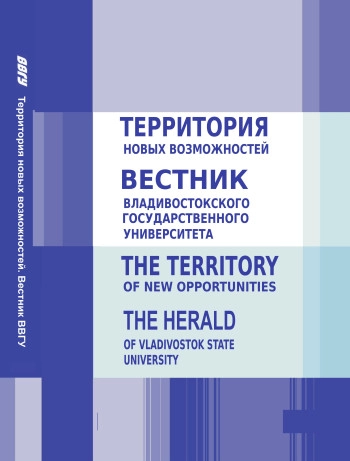graduate student
The article presents the results of a study of metacognitive abilities in students who are future teachers and psychologists. Metacognition, as the awareness and management of one's own cognitive processes, plays a crucial role in the development of professional competence and the effectiveness of teaching. Therefore, the study of psychological and pedagogica conditions that promote the evelopment of metacognitive abilities in students who are future teachers and psychologists is particularly relevant. The aim of this study is to analyze and identify the optimal psychological and pedagogical conditions that contribute to the effective development of metacognitive abilities in students. The study examines the theoretical foundations of metacognitive activity, its role, and significance in the professional training of psychological educators. The paper presents the results of empirical research aimed at assessing the level of development of metacognitive skills in students before and after the proposed conditions.
metacognitive abilities, psychological and pedagogical conditions, student psy- chologists, development of metacognitive abilities, metacognition, pedagogical activity, devel- opment.
1. Litvinov A.V., Ivolgina T.V. Metacognition: Concept, Structure, and Relationship to Intellectual and Cognitive Abilities (Based on Foreign Research). Developmental Psychology. 2013. URL: https://psyjournals.ru/files/63502/jmfp_2013_3_n4_Litvinov.pdf
2. Kibalchenko I.A., Zurnachyan G.M. The Role of Metacognition in Integrating Students' Intellectual and Creative Resources. URL: https://goo.su/qjRFrsC
3. Kofeynikova Yu.L., Nikolaeva E.S., Khukumatshoeva Sh. Diagnostics of Metacognition in Students of the Psychological and Pedagogical Profile in the Process of Professional Training. URL: https://goo.su/0yHoQmy
4. Nikolaeva E.I. Metacognitive Competence: What is the Problem? Bulletin of Practical Psychology of Education. 2012; 9 (3): 34–38. URL: https://psyjournals.ru/vestnik_psyobr/2012/n3/Nikolayeva.shtml
5. Karpov A.V. On the concept of metacognitive abilities of a personality – Psychology of abilities and giftedness: proceedings of the All-Russian Scientific and Practical Conference [November 21–22, 2019] / edited by prof. V.A. Mazilov. Yaroslavl: RIO YAGPU; 2019. 554 p. URL: https://clck.ru/gcpze
6. Sidorova T.A., Chernyavskaya V.S. Metacognitive abilities in mediating the difficulties of experiencing the process of learning in the field of physics – Self-disclosure of abilities as an internal dialogue: cognitive, metacognitive and existential human resources: monograph / Vladivostok State University of Economics and Service. Vladivostok: VSUES Publishing House; 2021. 216 p. URL: https://clck.ru/gczL2
7. Chernyavskaya V.S., Malakhova V.R. Meta-competencies and Reflective Analysis in Professional Education. URL: https://elibrary.ru/item.asp?id=23016583
8. Belenkova Yu.S. Methodological Aspects of Developing Students’ Meta-cognitive Skills. URL: https://www.elib
9. Chernyavskaya V.S. The program of development of metacognitive qualities of fifthgraders for the effectiveness of studying mathematics. Territory of new opportunities. Bulletin of Vladivostok State University. 2025; 17 (1): 111–123. DOI:https://doi.org/10.29039/2949-1258/2025-1/111-123
10. Kholodnaya M.A. Psychology of Intelligence. Research Paradoxes. Moscow: Yurayt Publishing House; 2019. 334 p.
11. Kashapov M.M., Poshekhonova Yu.V. The Role of Metacognition in Professional Pedagogical Thinking. URL: https://elibrary.ru/item.asp?id=29384285
12. Dynamics of Metacognitive Determinants of Managerial Activity in the Process of Professionalization / A.V. Karpov, A.A. Karpov, N.V. Karabushchenko, A.V. Ivashchenko. Experimental Psychology. 2018; 11 (1): 49–60. DOI: https://doi.org/https://doi.org/10.17759/exppsy.2018110103
13. Egorova M.A., Lobanova A.V. Professional Examination as a Resource for Increasing the Readiness of Future Psychologists to Support the Educational Process in Schools. Cultural-Historical Psychology. 2025; 21 (1): 77–87. DOI: https://doi.org/10.17759/chp.2025210108
14. Ulyanina O.A., Tukfeeva Yu.V., Semenova K.G. Actualization of the Professional Standard “Teacher-Psychologist (Psychologist in the Field of Education)”: Content Analysis. Bulletin of Practical Psychology of Education. 2023; 20 (3): 90–101. DOI: https://doi.org/10.17759/bppe.2023200307
15. Dubrovina I.V. Professional Competition of Educational Psychologists as a Factor in the Development of the Psychological Service in the Education System. Vestnik prakticheskoi psikhologii obrazovaniia. 2021; 18 (2): 15–20. DOI: https://doi.org/10.17759/bppe.2021180201
16. Magomedova A.Kh., Parsieva L.K. Development of metacognitive skills in students through the creation of a metacognitive educational environment. The World of Science, Culture, Education. 2024. URL: https://clk.li/TUkZ
17. Methodology: Self-assessment of metacognitive knowledge and metacognitive activity (Yu.V. Skvortsova, M.M. Kashapov). URL: https://www.sites.-google.com/site/test300m/mzma
18. Everson D. Methodology: Metacognitive Personality Properties. URL: https://www.sites.google.com/site/test300m/ode
19. Sidorenko S. Methods of Mathematical Processing in Psychology. St. Petersburg: Rech; 2007. 350 p.





